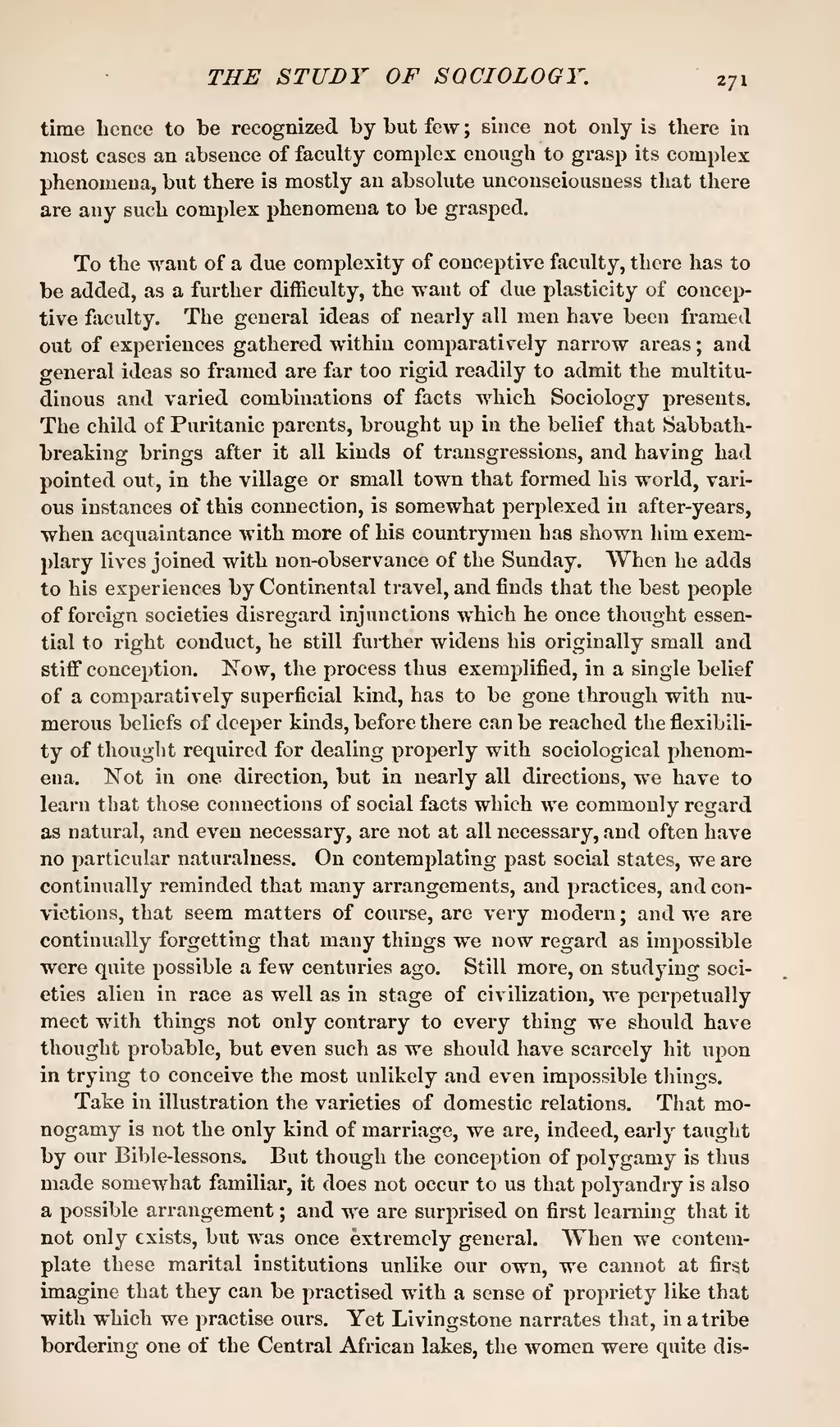time hence to be recognized by but few; since not only is there in most cases an absence of faculty complex enough to grasp its complex phenomena, but there is mostly an absolute unconsciousness that there are any such complex phenomena to be grasped.
To the want of a due complexity of conceptive faculty, there has to be added, as a further difficulty, the want of due plasticity of conceptive faculty. The general ideas of nearly all men have been framed out of experiences gathered within comparatively narrow areas; and general ideas so framed are far too rigid readily to admit the multitudinous and varied combinations of facts which Sociology presents. The child of Puritanic parents, brought up in the belief that Sabbath-breaking brings after it all kinds of transgressions, and having had pointed out, in the village or small town that formed his world, various instances of this connection, is somewhat perplexed in after-years, when acquaintance with more of his countrymen has shown him exemplary lives joined with non-observance of the Sunday. When he adds to his experiences by Continental travel, and finds that the best people of foreign societies disregard injunctions which he once thought essential to right conduct, he still further widens his originally small and stiff conception. Now, the process thus exemplified, in a single belief of a comparatively superficial kind, has to be gone through with numerous beliefs of deeper kinds, before there can be reached the flexibility of thought required for dealing properly with sociological phenomena. Not in one direction, but in nearly all directions, we have to learn that those connections of social facts which we commonly regard as natural, and even necessary, are not at all necessary, and often have no particular naturalness. On contemplating past social states, we are continually reminded that many arrangements, and practices, and convictions, that seem matters of course, are very modern; and we are continually forgetting that many things we now regard as impossible were quite possible a few centuries ago. Still more, on studying societies alien in race as well as in stage of civilization, we perpetually meet with things not only contrary to every thing we should have thought probable, but even such as we should have scarcely hit upon in trying to conceive the most unlikely and even impossible things.
Take in illustration the varieties of domestic relations. That monogamy is not the only kind of marriage, we are, indeed, early taught by our Bible-lessons. But though the conception of polygamy is thus made somewhat familiar, it does not occur to us that polyandry is also a possible arrangement; and we are surprised on first learning that it not only exists, but was once extremely general. When we contemplate these marital institutions unlike our own, we cannot at first imagine that they can be practised with a sense of propriety like that with which we practise ours. Yet Livingstone narrates that, in a tribe bordering one of the Central African lakes, the women were quite dis-
